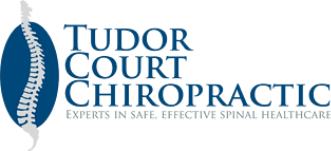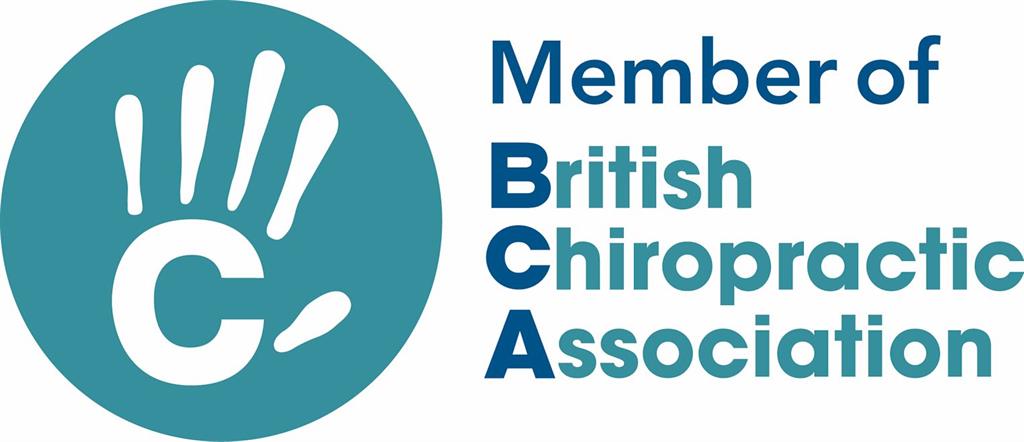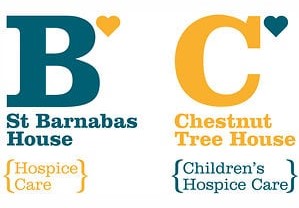Chiropractic FAQ's

If you have a question that isn't answered here, please call us or send us an e-mail. If you want to find out more about our chiropractor, click the link.
1. What is chiropractic?
Chiropractic literally means "treatment by hand” and is the third largest primary health-care profession in the world, after medicine and dentistry.
Chiropractors specialise in the diagnosis, treatment and management of joint, muscle, ligament, tendon and nerve problems, particularly those of the spine. A more complete list of problems we can help with are here.
Chiropractic treatment involves safe, gentle and specific manipulation and mobilisation techniques to free joints and restore 'normal' motion. Once mobility is restored, aches and pain are significantly reduced, muscles and ligaments relax and blood flow is increased to the affected area. Chiropractic does not involve the use of any drugs or surgery.
2. Is chiropractic safe?
In a word, yes. However, you may experience some mild aching after your first treatment, similar to the feeling you get after a workout.
A recent study covering over 50,000 neck treatments found no serious side effects, reinforcing the research that chiropractic treatment is extremely safe and that risks associated with treatment are low to very low (Thiel, etal 2007, Spine 32;21).
To put it into perspective, chiropractic treatment is much safer than crossing the road and many, many times safer than regularly taking anti-inflammatories used to mask pain. If you have any questions we will happily answer them.
3. Are chiropractors well-trained?
Yes. All chiropractors have to complete a rigorous four year degree course. This includes comprehensive knowledge of all systems of the body and diagnostic procedures to enable us to thoroughly evaluate a patient, address disorders relating to joints, muscles, ligaments, tendons and nerves and determine the need for referral to another health care practitioner.
The degree courses in the UK are constantly reviewed by the General Chiropractic Council (GCC), the UK regulatory body to maintain exceptionally high standards.
4. Can anyone call themselves a chiropractor?
No. To use the title ‘Chiropractor’ or 'Doctor of Chiropractic' in the UK, we must have passed a GCC recognised degree course, be registered with the GCC and complete a minimum of 30 hours Continuing Professional Development (CPD) per year.
All chiropractors at Tudor Court Chiropractic are members of the GCC and have all their qualifications and certificates on display in the treatment room.
5. Does treatment hurt?
No, not really. As mentioned above, you may experience some mild aching after your first treatment, usually because you’re a little tense. After that though, it’s a fairly relaxing experience.
6. I’ve heard chiropractor’s “crack your bones” Is that true!?!
No. It is possible that you will hear a "clicking noise" during treatment. This noise is simply tiny gas bubbles from within your joints being released as a “click”. This is not harmful in any way and may actually help you to feel looser.
7. How long will it take for me to feel better?
How long it takes before you start to feel better depends on three main factors. How severe your problem is to start with, how long you have had it for and finally, your lifestyle.
In other words, if you have had mild low back ache for two days and are otherwise healthy and active, you will probably start to feel better almost immediately.
However, if you have severe low back pain radiating into your legs and have had repeated episodes for over twenty years, don't look after yourself very well and sit at a desk all day, you will probably find progress a little slower.
In our experience, the vast majority of muscle, tendon, ligament, joint and nerve problems respond to treatment within four visits. That is not to say that you will be cured in four visits (although you might) but that you will feel a reasonable improvement within that time frame.
8. How many visits will I need?
This relates very closely to the above. Some people simply want pain relief. As soon as they start to feel better they stop coming, which is absolutely fine. Sometimes though, the faulty mechanics that caused their problem take a little longer to be corrected and rehabilitated.
Many patients choose to have maintenance visits when their problem has been resolved, a little like a dentist’s check-up or having your car serviced at regular intervals.
We will give you simple to understand recommendations on all of the above options. At Tudor Court Chiropractic, you decide when you come and for how long.
9. What shall I wear?
Whatever you like. On your first session, we will ask you to change into a gown that does up at the back with Velcro. This is so we can perform your initial examination.
However, on subsequent visits we will treat you in your clothes so try to wear something that you will comfortable in.
10. Can I see you on the NHS?
Unfortunately not, at the moment. Our local NHS trust does not currently consider low back pain and neck pain a priority and, therefore, you cannot see a chiropractor on the NHS.
However, in some parts of the country where the local NHS trust does consider these problems a priority, chiropractors do treat NHS patients.
The second our local NHS trust has a change of heart, Tudor Court Chiropractic will apply to be a NHS provider.
11. Do you take x-rays?
Not at our clinic. We do refer for x-rays and MRI scans but only when absolutely necessary. The truth is, people rarely need x-rays in this day and age. MRI scans offer vastly superior image quality and also include your muscles, ligaments, tendons and nerves, not just your bones.
At Tudor Court Chiropractic, we work closely with several local hospitals that can perform x-rays, MRI scans, CT scans and ultrasound scans at a discounted rate to you.
However, it is worth noting that the above investigations are rarely required for most common problems. If you have specific questions about imaging, please ask.
12. What's the difference between a chiropractor and an osteopath?
Not very much. When the two professions first started out over one hundred years ago, they were somewhat different. However, as time has gone on they have become more and more similar.
The only factual difference is that chiropractors are qualified to both take and read x-rays. Osteopaths cannot take x-rays.
13. Should I come to you? How do I choose where to go?
The best way to choose any healthcare practitioner is by personal recommendation. That way, you know before you arrive that the chiropractor and/or chiropractic practice you choose knows what they’re doing and that they suit you.
It is also very important to choose a clinic where the treatment you receive is personalised to you and where you also receive individual rehabilitation stretches and exercises to help prevent further episodes in the future.
If you don't know anyone who uses or has used a chiropractor in the past, it’s a good idea to go for someone who has decent ratings and reviews. We would recommend Google reviews as these are reviews from real people who are commenting on their own personal experience.
You can choose us safe in the knowledge that we are ranked in the top five out of over 400 chiropractic clinics in the UK for quality, service and value for money. This information is available at www.freeindex.co.uk the UK’s most detailed directory.
1. What is chiropractic?
Chiropractic literally means "treatment by hand” and is the third largest primary health-care profession in the world, after medicine and dentistry.
Chiropractors specialise in the diagnosis, treatment and management of joint, muscle, ligament, tendon and nerve problems, particularly those of the spine. A more complete list of problems we can help with are here.
Chiropractic treatment involves safe, gentle and specific manipulation and mobilisation techniques to free joints and restore 'normal' motion. Once mobility is restored, aches and pain are significantly reduced, muscles and ligaments relax and blood flow is increased to the affected area. Chiropractic does not involve the use of any drugs or surgery.
2. Is chiropractic safe?
In a word, yes. However, you may experience some mild aching after your first treatment, similar to the feeling you get after a workout.
A recent study covering over 50,000 neck treatments found no serious side effects, reinforcing the research that chiropractic treatment is extremely safe and that risks associated with treatment are low to very low (Thiel, etal 2007, Spine 32;21).
To put it into perspective, chiropractic treatment is much safer than crossing the road and many, many times safer than regularly taking anti-inflammatories used to mask pain. If you have any questions we will happily answer them.
3. Are chiropractors well-trained?
Yes. All chiropractors have to complete a rigorous four year degree course. This includes comprehensive knowledge of all systems of the body and diagnostic procedures to enable us to thoroughly evaluate a patient, address disorders relating to joints, muscles, ligaments, tendons and nerves and determine the need for referral to another health care practitioner.
The degree courses in the UK are constantly reviewed by the General Chiropractic Council (GCC), the UK regulatory body to maintain exceptionally high standards.
4. Can anyone call themselves a chiropractor?
No. To use the title ‘Chiropractor’ or 'Doctor of Chiropractic' in the UK, we must have passed a GCC recognised degree course, be registered with the GCC and complete a minimum of 30 hours Continuing Professional Development (CPD) per year.
All chiropractors at Tudor Court Chiropractic are members of the GCC and have all their qualifications and certificates on display in the treatment room.
5. Does treatment hurt?
No, not really. As mentioned above, you may experience some mild aching after your first treatment, usually because you’re a little tense. After that though, it’s a fairly relaxing experience.
6. I’ve heard chiropractor’s “crack your bones” Is that true!?!
No. It is possible that you will hear a "clicking noise" during treatment. This noise is simply tiny gas bubbles from within your joints being released as a “click”. This is not harmful in any way and may actually help you to feel looser.
7. How long will it take for me to feel better?
How long it takes before you start to feel better depends on three main factors. How severe your problem is to start with, how long you have had it for and finally, your lifestyle.
In other words, if you have had mild low back ache for two days and are otherwise healthy and active, you will probably start to feel better almost immediately.
However, if you have severe low back pain radiating into your legs and have had repeated episodes for over twenty years, don't look after yourself very well and sit at a desk all day, you will probably find progress a little slower.
In our experience, the vast majority of muscle, tendon, ligament, joint and nerve problems respond to treatment within four visits. That is not to say that you will be cured in four visits (although you might) but that you will feel a reasonable improvement within that time frame.
8. How many visits will I need?
This relates very closely to the above. Some people simply want pain relief. As soon as they start to feel better they stop coming, which is absolutely fine. Sometimes though, the faulty mechanics that caused their problem take a little longer to be corrected and rehabilitated.
Many patients choose to have maintenance visits when their problem has been resolved, a little like a dentist’s check-up or having your car serviced at regular intervals.
We will give you simple to understand recommendations on all of the above options. At Tudor Court Chiropractic, you decide when you come and for how long.
9. What shall I wear?
Whatever you like. On your first session, we will ask you to change into a gown that does up at the back with Velcro. This is so we can perform your initial examination.
However, on subsequent visits we will treat you in your clothes so try to wear something that you will comfortable in.
10. Can I see you on the NHS?
Unfortunately not, at the moment. Our local NHS trust does not currently consider low back pain and neck pain a priority and, therefore, you cannot see a chiropractor on the NHS.
However, in some parts of the country where the local NHS trust does consider these problems a priority, chiropractors do treat NHS patients.
The second our local NHS trust has a change of heart, Tudor Court Chiropractic will apply to be a NHS provider.
11. Do you take x-rays?
Not at our clinic. We do refer for x-rays and MRI scans but only when absolutely necessary. The truth is, people rarely need x-rays in this day and age. MRI scans offer vastly superior image quality and also include your muscles, ligaments, tendons and nerves, not just your bones.
At Tudor Court Chiropractic, we work closely with several local hospitals that can perform x-rays, MRI scans, CT scans and ultrasound scans at a discounted rate to you.
However, it is worth noting that the above investigations are rarely required for most common problems. If you have specific questions about imaging, please ask.
12. What's the difference between a chiropractor and an osteopath?
Not very much. When the two professions first started out over one hundred years ago, they were somewhat different. However, as time has gone on they have become more and more similar.
The only factual difference is that chiropractors are qualified to both take and read x-rays. Osteopaths cannot take x-rays.
13. Should I come to you? How do I choose where to go?
The best way to choose any healthcare practitioner is by personal recommendation. That way, you know before you arrive that the chiropractor and/or chiropractic practice you choose knows what they’re doing and that they suit you.
It is also very important to choose a clinic where the treatment you receive is personalised to you and where you also receive individual rehabilitation stretches and exercises to help prevent further episodes in the future.
If you don't know anyone who uses or has used a chiropractor in the past, it’s a good idea to go for someone who has decent ratings and reviews. We would recommend Google reviews as these are reviews from real people who are commenting on their own personal experience.
You can choose us safe in the knowledge that we are ranked in the top five out of over 400 chiropractic clinics in the UK for quality, service and value for money. This information is available at www.freeindex.co.uk the UK’s most detailed directory.














